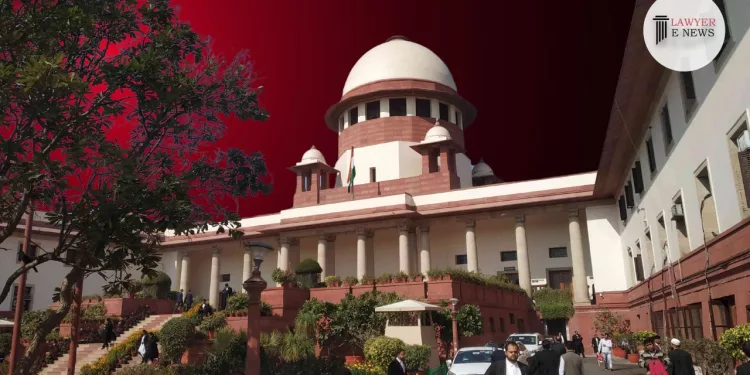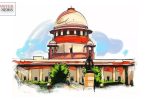Supreme Court refers water sharing dispute between Delhi, Haryana, and Himachal Pradesh to Upper Yamuna River Board (UYRB) for resolution

In a recent ruling, the Supreme Court of India has emphasized the critical role of specialized bodies in resolving complex inter-state water disputes. The judgment, delivered by a bench comprising Justices Prashant Kumar Mishra and Prasanna Bhalachandra Varale, referred the dispute over the release of surplus drinking water from the Hathni Kund Barrage to the Upper Yamuna River Board (UYRB). This decision underscores the judiciary’s recognition of the limitations of the court in adjudicating technical and specialized issues related to water sharing.
The writ petition was filed under Article 32 of the Constitution by the Government of NCT of Delhi, seeking directions for the release of surplus drinking water from the Hathni Kund Barrage by the states of Haryana and Himachal Pradesh to address acute water scarcity in Delhi. The petition highlighted the severe water shortage faced by Delhi due to extraordinary heat wave conditions and sought additional water to meet the city’s needs.
The Supreme Court highlighted the necessity of relying on specialized bodies like the UYRB to handle complex inter-state water disputes. “This Court does not possess the necessary expertise to decide such intricate matters involving technical aspects of water sharing between states,” the bench noted. The judgment acknowledged past instances where specialized bodies were deemed more suitable for resolving such disputes.
The court referred to the emergent meeting convened by the UYRB on June 5, 2024, which discussed the water crisis in Delhi and the feasibility of releasing additional water from Himachal Pradesh and Haryana. The UYRB’s minutes of the meeting were cited, highlighting the conflicting positions of the states involved. Himachal Pradesh initially agreed to release 137 cusecs of surplus water but later retracted, citing inaccurate earlier statements about water availability. Haryana also contended it faced similar water scarcity and could not provide additional water.
The Supreme Court directed the Government of Delhi to formally request Haryana for 150 cusecs of additional water on humanitarian grounds. The court underscored the extraordinary heat wave conditions and the acute shortage of drinking water in Delhi. “Given the severe crisis, the UYRB should expeditiously decide on Delhi’s request for additional water,” the bench stated.
Justice Prashant Kumar Mishra remarked, “The issue concerning sharing of Yamuna water between the states is complex and sensitive. This Court does not have the expertise to decide such matters, which should be left to the specialized body, the UYRB, constituted with the agreement of the parties.”
The Supreme Court’s judgment reaffirms the importance of specialized bodies like the UYRB in resolving inter-state water disputes. By referring the matter to the UYRB and directing it to expedite the decision on Delhi’s request for additional water, the court underscores the need for expertise in handling such complex issues. This decision is expected to streamline the process of resolving water disputes and ensure a more efficient and informed approach to water resource management in India.
Date of Decision: 13th June 2024
Government of NCT of Delhi vs. State of Haryana & Ors.






